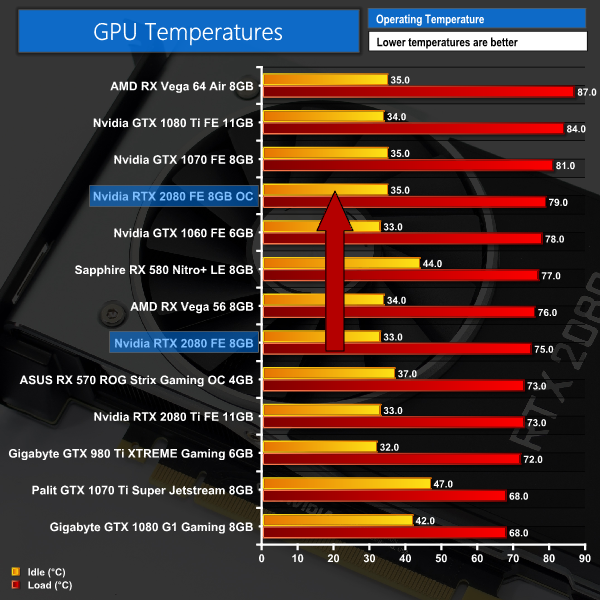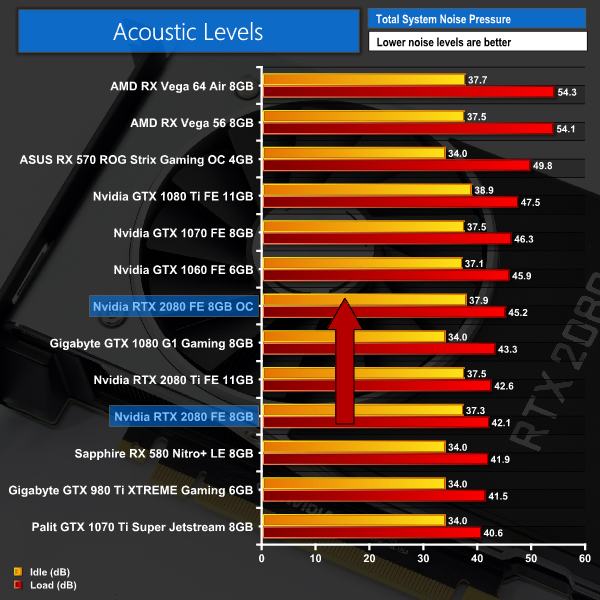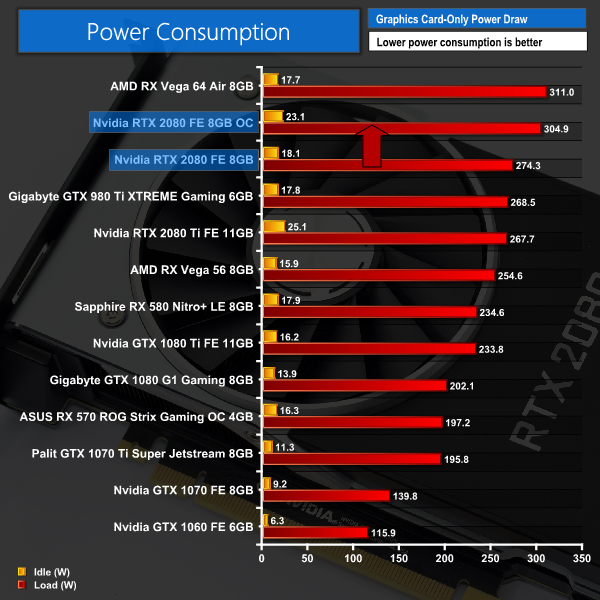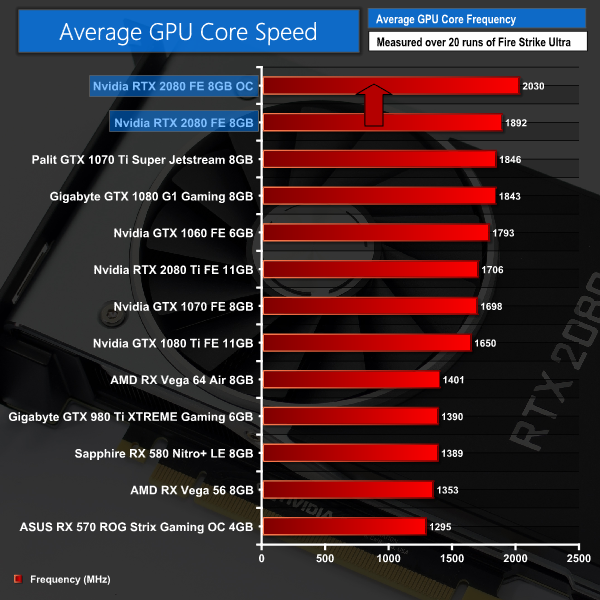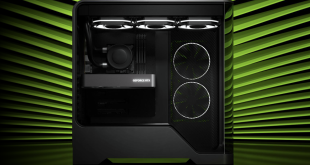Here, we take a further look at the impact of our overclock, looking at the increased temperatures, acoustics, power draw, and lastly, the effect had on the average clock speed.
Temperatures
Acoustics
Power consumption
Average clock speed under load
Overview
As expected, GPU core temperature, noise levels and power consumption all rise as a result of our overclock. I would say, however, that the increased noise is not huge – it just makes the overclocked RTX 2080 Founders Edition sound like a stock clocked Founders Edition of the previous generation! Peak GPU temperature only rose 4C as well, putting it still below 80C, despite the increased power limit and voltage.
Average GPU frequency hit over 2GHz, which is a fantastic result and one that will have overclockers rubbing their hands together with excitement. The specific clock speed we achieved, 2030MHz, is almost exactly the +145MHz that we dialled in, so I would call that overclock a very good result.
 KitGuru KitGuru.net – Tech News | Hardware News | Hardware Reviews | IOS | Mobile | Gaming | Graphics Cards
KitGuru KitGuru.net – Tech News | Hardware News | Hardware Reviews | IOS | Mobile | Gaming | Graphics Cards


